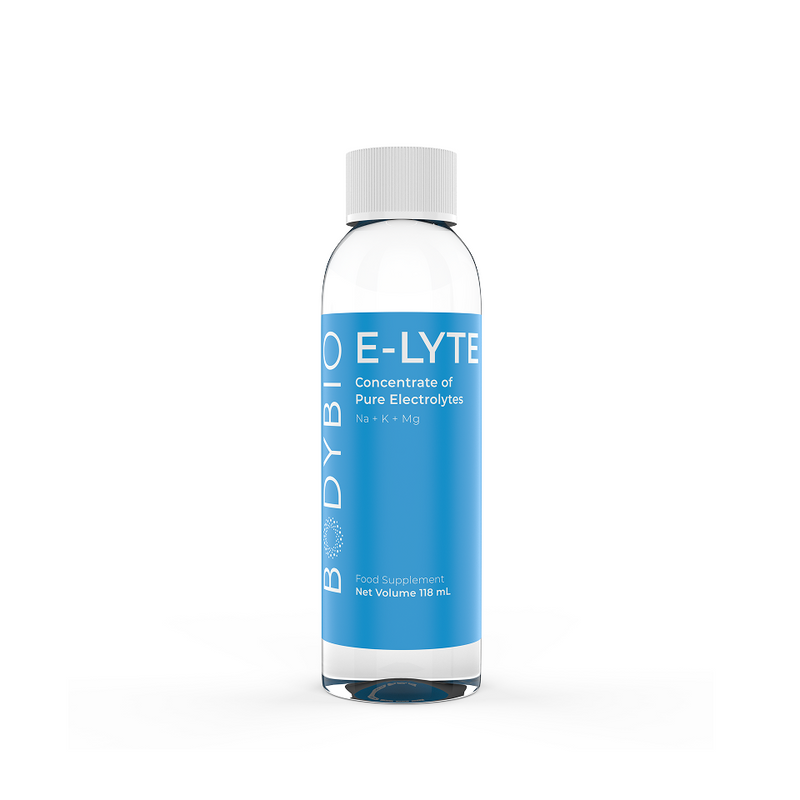Your Ultimate Guide to Muscle Recovery After a Workout
Key Takeaways:
Key Points:
- Pilates, weight lifting, sports, and outdoor activities are some of the best ways to support your longevity and cellular health. That said, those who experience regular sore muscles may need extra nutritional support.
- Start with 1-2 supplements to help mitigate the symptoms you experience while supporting your fitness goals. Some supplements (like collagen) contain essential nutrients and can help simplify your routine.
- Your post-workout recovery routine should include hydration, gentle stretching, and nutrient-dense meals — along with targeted supplementation.
The average person spends 6-8 hours daily in a sedentary state — which contradicts the active lifestyle we experienced throughout most of human history.
Whether you prioritize weight lifting at the gym or enjoy regular outdoor hikes, exercise is one of the best choices you can make for your body.
That said, any new workout routine can be challenging — whether you’re a total gym newbie or a fitness pro. Your muscles need time and resources to recover well. The soreness and discomfort experienced after a tough gym session can often hold you back from improving your routine or even working out altogether.
The good news is that there are workout recovery supplements and lifestyle practices you can use to reduce soreness and speed recovery time. That way, you can get back to your routine, continue to build strength, and meet your fitness goals faster.
Table of Contents:
- Workout Recovery Supplements
- Lifestyle Recommendations
- Workout Recovery Supplements and Cellular Health
- Quality Electrolytes for Optimal Hydration
Workout Recovery Supplements
It’s easy to feel overwhelmed when looking for workout recovery supplements. There are dozens of options to choose from that all have different benefits (like hydration, muscle building, or muscle recovery).
Here are some of our favorite workout recovery supplements to help you cover all your bases.
Electrolytes
Ideally, you should be hydrating before, during, and after intense workouts — especially if you’re doing them outside with the sun beating down on you. Electrolytes are the essential minerals that feed our cells with a positive or negative charge. They help us maintain fluid balance throughout the body, taking pressure off our kidneys and other organs.
By prioritizing hydration after a workout, you’re giving your body the elements it needs to succeed and recover well. Your body will be able to absorb nutrients more efficiently while maintaining a steady heart rate.
Creatine
The ultimate workout recovery supplement, creatine, is renowned for its ability to build muscle mass. But bulking isn’t the only reason you should take creatine. If sore muscles become your norm, creatine can help you rebuild muscles faster, slowly enhancing your performance and strength over time. Meaning: less pain and better performance. More and more research is showing the brain-supportive benefits of creatine, too!
Beef Liver Capsules
One of the world’s most nutrient-dense foods, beef liver is nature’s multivitamin. It’s rich in all the fat-soluble vitamins (A, D, E, and K). Plus, it’s a powerful source of B vitamins, vitamin C, and minerals (like zinc, copper, iron, and phosphorus). The protein in beef liver should aid in recovery, while the nutrients and minerals can go straight to rebuilding your muscles.
Protein
Whether in the form of protein powder, supplements, or protein-rich foods, your muscles crave protein as they rebuild and recover from a difficult workout. Especially if you’re lifting weights, your muscles will break down as they’re used. This is a good thing — because they come back stronger. But it can be an uncomfortable process. Protein not only helps to mitigate the symptoms but also provides nutrients your muscles (and organs) need to revive.
Amino Acids
Similar to the effects of protein, amino acids aid in muscle building and workout recovery. Since they’re used to build healthy muscles, adding them to your diet or supplement routine can strengthen your body over time, eventually leading to less soreness and better recovery. Amino acids are powerful for brain health and energy, too, so if you ever experience brain fog or fatigue after a workout, this supplement can come to the rescue.
One study shows that amino acid supplements are especially helpful for active elderly populations. Additionally, if you’re struggling with nutrient deficiency or chronic illness, restoring nutrients like amino acids after a workout is extra important. Your vital organs will get priority when it comes to these nutrients, so supplementation helps ensure your whole body (muscles included) is well-nourished.
Homeopathy
Homeopathic remedies (made from plants and herbs) can help to reduce intense muscle soreness. Arnica, a popular homeopathic remedy, can be taken orally or topically (applied to painful areas) for general pain and bruising. Another remedy, Ruta, is helpful for general soreness that’s improved by movement or for tendon injuries. Finally, Rhus Tox may help with pain induced by inflammation.
When taking homeopathy, it’s important to match your specific symptoms to the remedy’s description. This will ensure you get a more effective dose. It may take some trial and error at first, but homeopathic remedies are highly diluted and usually harmless. Try one remedy and wait about twenty minutes. If it doesn’t work, try a different remedy.
Magnesium
Besides your diet and nutrition, sleep is one of the most important habits for workout recovery. Magnesium is essential for sleep optimization, plus it offers muscle relaxation benefits (one study showed that magnesium significantly reduced soreness in young adults after bench press sessions).
Not only is magnesium an essential mineral, but it’s also an electrolyte. It supports heart health (for improved breathing and blood circulation), nerve function, healthy blood sugar levels, and is a cofactor for protein synthesis.
Collagen
This supernutrient comes from the connective tissue of animals and fish. Collagen supplements (usually in powder form) provide us with the tools we need to build our own collagen peptides, which are essential for skin elasticity and healthy joints.
That’s not where the benefits of high-quality collagen supplements stop, though. Collagen also contains protein, glycine (wonderful for gut health), amino acids, and other nutrients like vitamin C and potassium. So, if your goal is to increase your protein and amino acid intake at the same time, collagen can help simplify your routine.
Quality Fish Oil
A quality fish oil supplement helps replenish omega-3 essential fatty acids (EPA and DHA) in the body. These EFAs support cognitive function, heart health, and help our bodies maintain a healthy inflammatory response.* This is especially helpful where muscle soreness or post-workout pain is related to temporary spikes in inflammation.
Since we can’t make EPA and DHA in our bodies, high-quality fish oil supplements can help us meet our nutritional needs for these essential fats (which are higher when we’re active).
When exploring a fish oil supplement, choose one that doesn’t use chemical solvents for oil extraction or fillers.
Muscle Recovery Guide: Lifestyle Recommendations
Supplementation isn’t the only way to quicken muscle recovery and build strong form in the gym. There are many other ways to support your body as you start a new workout routine. Ideally, every workout recovery plan should include these elements:
- Nutrient-Dense Meals. Supplementation only gets you so far. In fact, they should be considered a “bonus” to your already nutrient-dense diet. A good rule is to consume a healthy form of carbohydrates before any intense workout (grains, veggies, and fruits) and protein-rich foods after, especially if your workout is strength-focused. You should also prioritize three full meals balanced with healthy fats, proteins, carbs, and fiber throughout the day.
- Gentle Stretching. An easy yoga routine can aid in muscle recovery. Practice good workout habits by stretching immediately after your workouts and the days following.
- Stay Active. Even though it seems counter-intuitive, getting your body moving with simple activities like walking or even a bit of housecleaning after a difficult workout can help loosen up your muscles and gently relieve pain.
- Visit a Sauna. Heat can relax sore muscles, releasing tension and increasing blood flow. An infrared sauna goes even further by penetrating deep into the tissue. Remember, saunas can dehydrate you — and should always be used responsibly, especially after a workout. If you’re using a sauna, you should also double up on electrolyte supplements.
- Hydrate Often. High-quality electrolytes (that don’t contain dyes, sugar, or additives) should always be part of your workout routine.
- Try Earthing. Simply putting your feet on the ground can act as a powerful pain reliever, thanks to the earth’s negative charge. Take a barefoot walk outside or enjoy a relaxing picnic on the grass — you earned it.
Workout Recovery Supplements and Cellular Health
Supplementing after a workout might feel like an unnecessary expense, especially if you already eat a diet mainly of whole foods. But it’s easy to overestimate the nutrients we get from our food sources. With the introduction of processed and instant foods, we consume far fewer nutrient-dense meals than we think. Plus, not all nutrients are absorbed by our bodies — especially if digestion issues and gut dysbiosis are present.
Workout recovery supplements help feed our bodies at the cellular level. Electrolytes, especially, allow us to maintain fluid balance in the cells, reducing the chances of dehydration. While supplements like amino acids and omega-3 fatty acids help the cells in our organs and muscles function optimally.
If we want to gain muscle and flexibility through exercise, it’s essential to make sure our cells are nourished first. When given the choice, our bodies will always choose vital organs and essential cellular function before muscle bulking. Because of this, paying attention to basic nutrient levels goes hand-in-hand with meeting your fitness goals.
High-Quality Electrolytes for Optimal Hydration
Electrolyte concentrations are readily available at grocery stores and online retailers, but not all contain the quality ingredients your cells deserve. Electrolyte supplements have been hijacked by food dyes, processed sugar, and artificial sweeteners — just to name a few ingredients you should avoid. This isn’t doing your body (or your cells) any favors.
Instead, choose a high-quality electrolyte supplement that includes only essential ingredients. Our pure electrolyte formula in BodyBio E-Lyte can be easily mixed into plain water or another drink. Just a capful during and post-workout can help you reach your fitness goals, working to soothe muscles and deeply hydrate cells (without all the junk).
Experience the Difference of High-Quality Hydration — Try E-Lyte
Børsheim, E., Bui, Q. U., Tissier, S., Kobayashi, H., Ferrando, A. A., & Wolfe, R. R. (2008). Effect of amino acid supplementation on muscle mass, strength and physical function in elderly. Clinical nutrition (Edinburgh, Scotland), 27(2), 189–195. https://doi.org/10.1016/j.clnu.2008.01.001
Reno, A. M., Green, M., Killen, L. G., O'Neal, E. K., Pritchett, K., & Hanson, Z. (2022). Effects of Magnesium Supplementation on Muscle Soreness and Performance. Journal of strength and conditioning research, 36(8), 2198–2203. https://doi.org/10.1519/JSC.0000000000003827
Ormsbee, M. J., Bach, C. W., & Baur, D. A. (2014). Pre-exercise nutrition: the role of macronutrients, modified starches and supplements on metabolism and endurance performance. Nutrients, 6(5), 1782–1808. https://doi.org/10.3390/nu6051782









